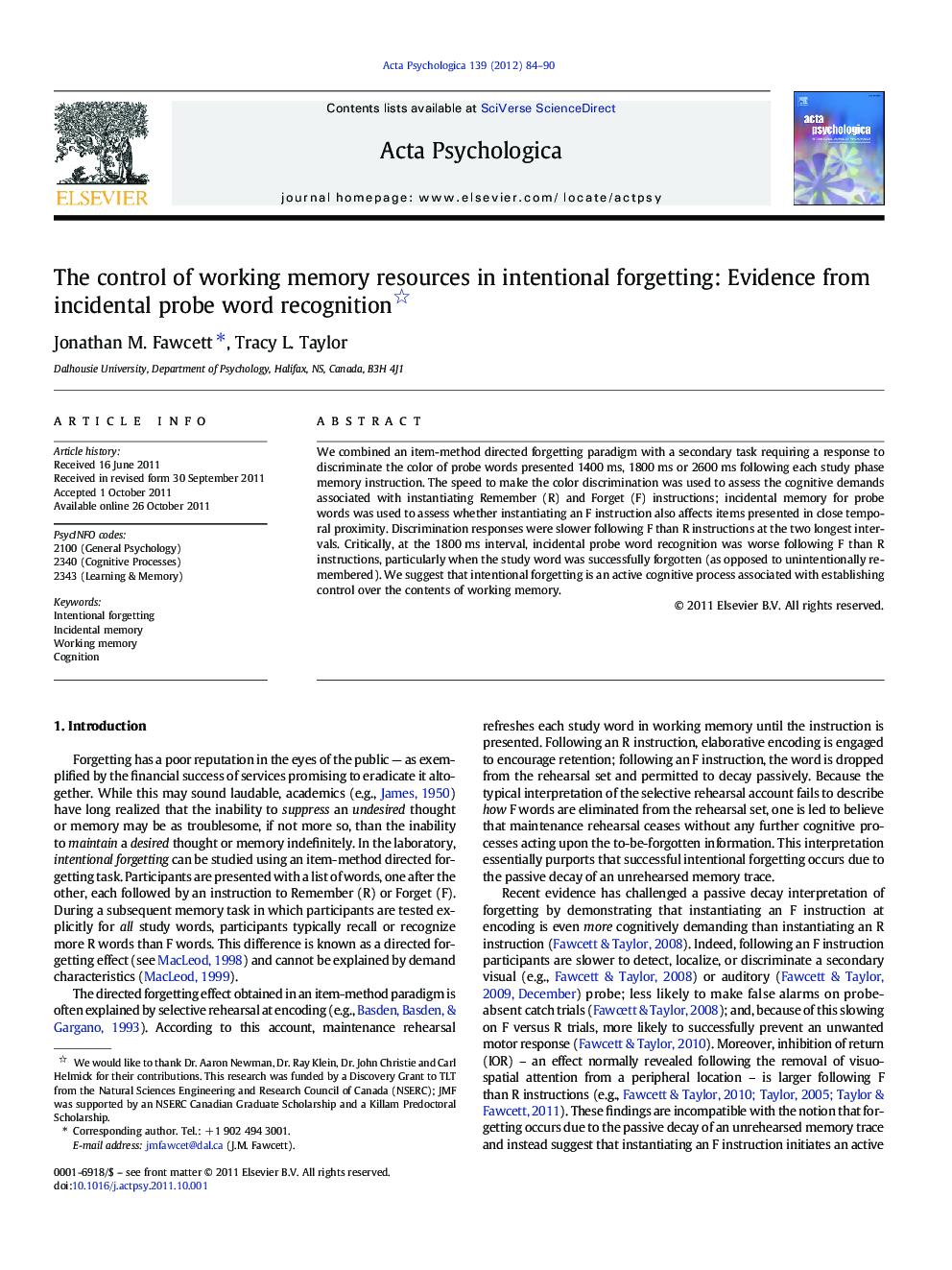| Article ID | Journal | Published Year | Pages | File Type |
|---|---|---|---|---|
| 920096 | Acta Psychologica | 2012 | 7 Pages |
We combined an item-method directed forgetting paradigm with a secondary task requiring a response to discriminate the color of probe words presented 1400 ms, 1800 ms or 2600 ms following each study phase memory instruction. The speed to make the color discrimination was used to assess the cognitive demands associated with instantiating Remember (R) and Forget (F) instructions; incidental memory for probe words was used to assess whether instantiating an F instruction also affects items presented in close temporal proximity. Discrimination responses were slower following F than R instructions at the two longest intervals. Critically, at the 1800 ms interval, incidental probe word recognition was worse following F than R instructions, particularly when the study word was successfully forgotten (as opposed to unintentionally remembered). We suggest that intentional forgetting is an active cognitive process associated with establishing control over the contents of working memory.
► We present probe words following item-method directed forgetting instructions. ► We examine incidental memory for the probe words as a function of instruction. ► Incidental probe memory was lower following Forget than Remember instructions. ► Intentional forgetting is associated with establishing control over working memory.
